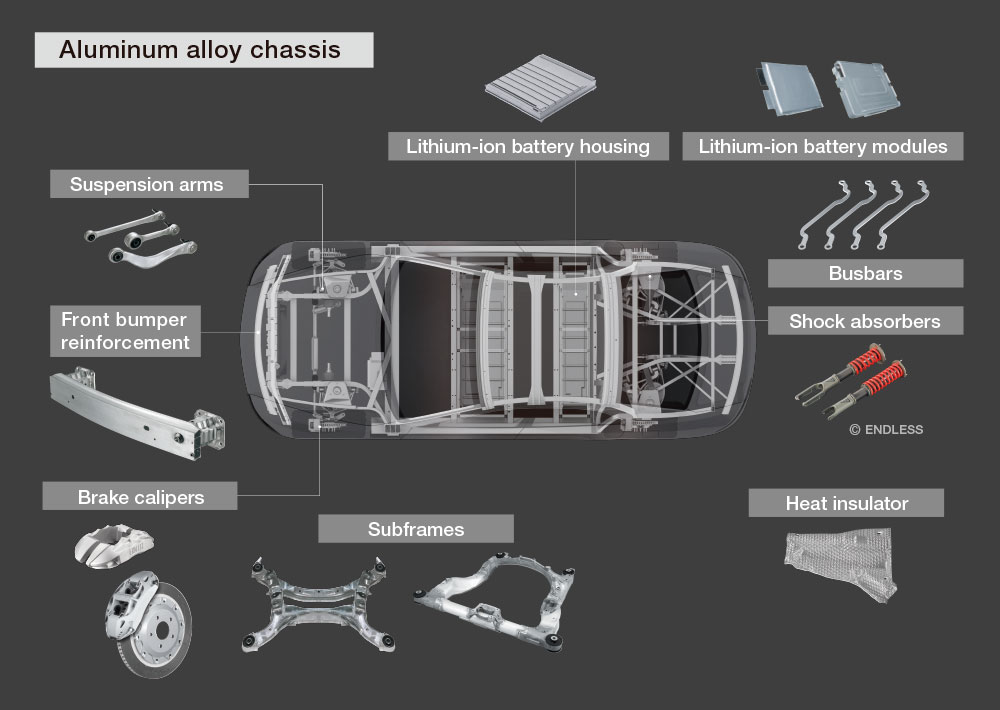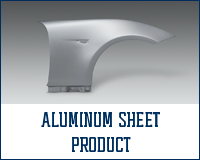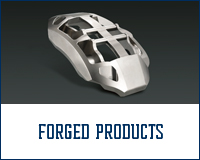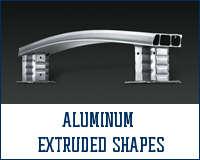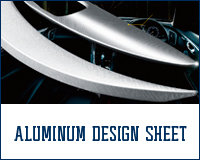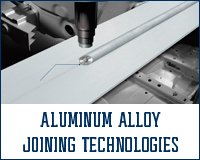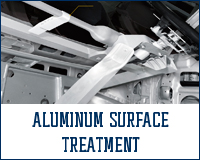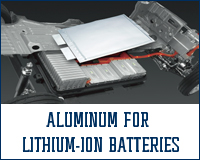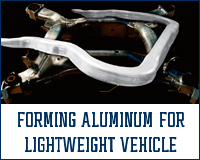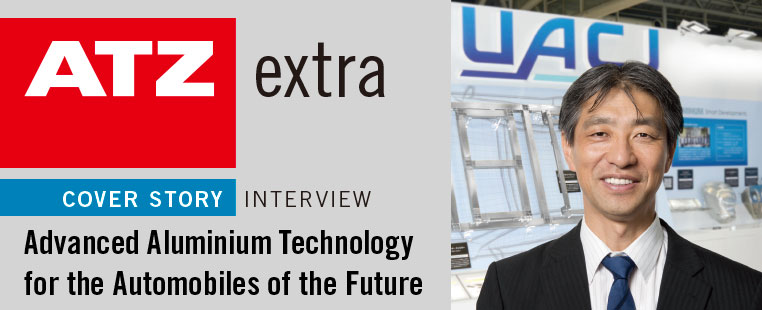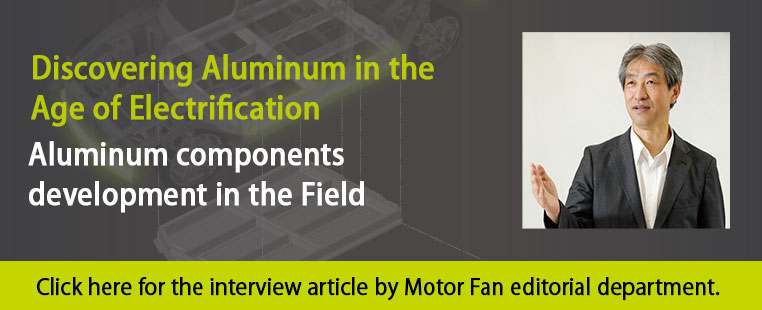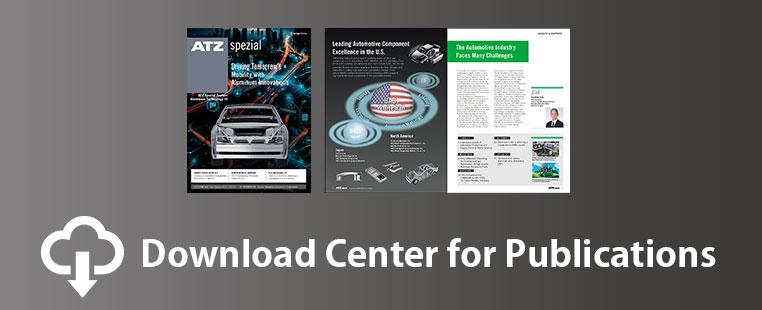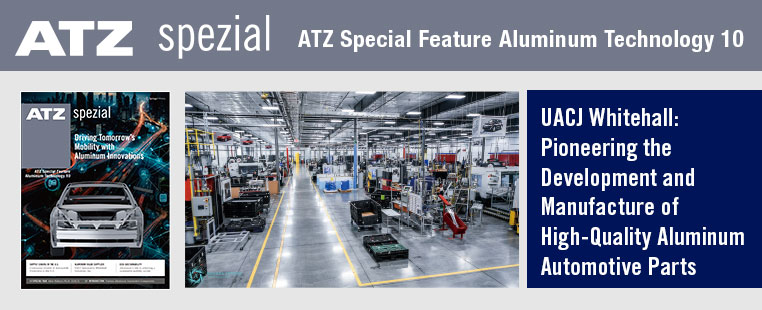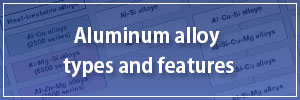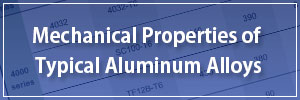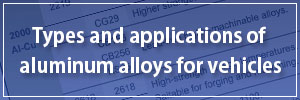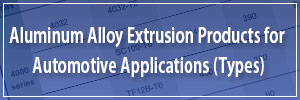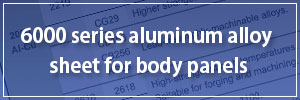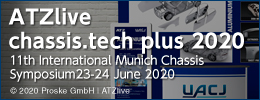
UACJ was born as a major global aluminum group originating in Japan in October 2013, when Furukawa-Sky Aluminum Corp. and Sumitomo Light Metal Industries Ltd. integrated their business operations.
Automotive weight reduction technology is indispensable for improving automotive fuel efficiency in order to reduce CO2 emissions. As a major company in the field of aluminum, UACJ is actively involved in the R&D of aluminum materials as well as the technological development required for promoting their utilization.
And UACJ has an extensive global network system to supply products worldwide.
source: Motor Fan illustrated vol.194
Advanced Aluminum Technology for the Automobiles of the Future
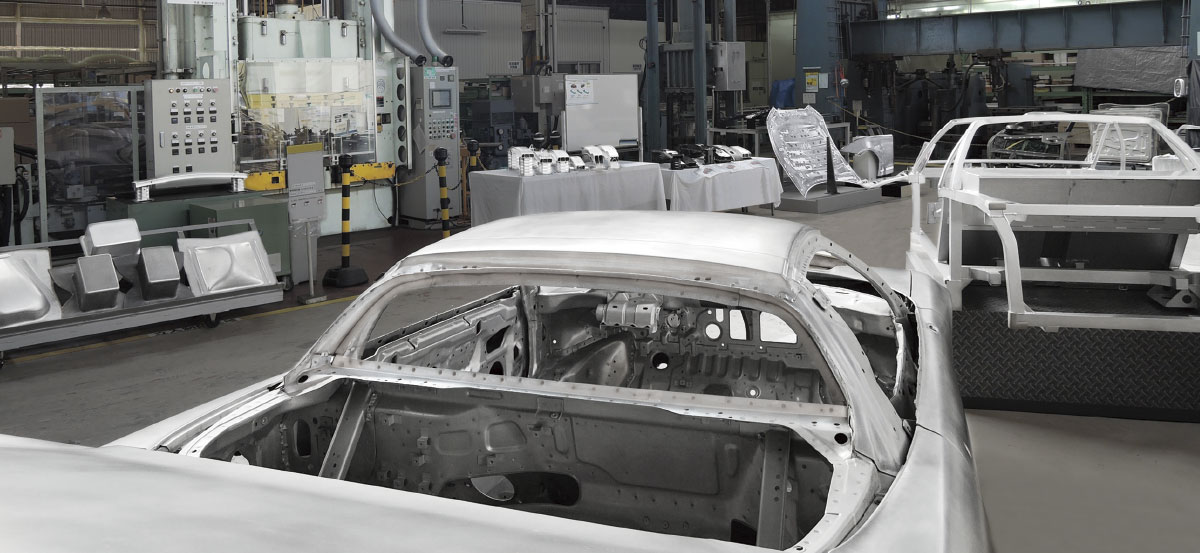
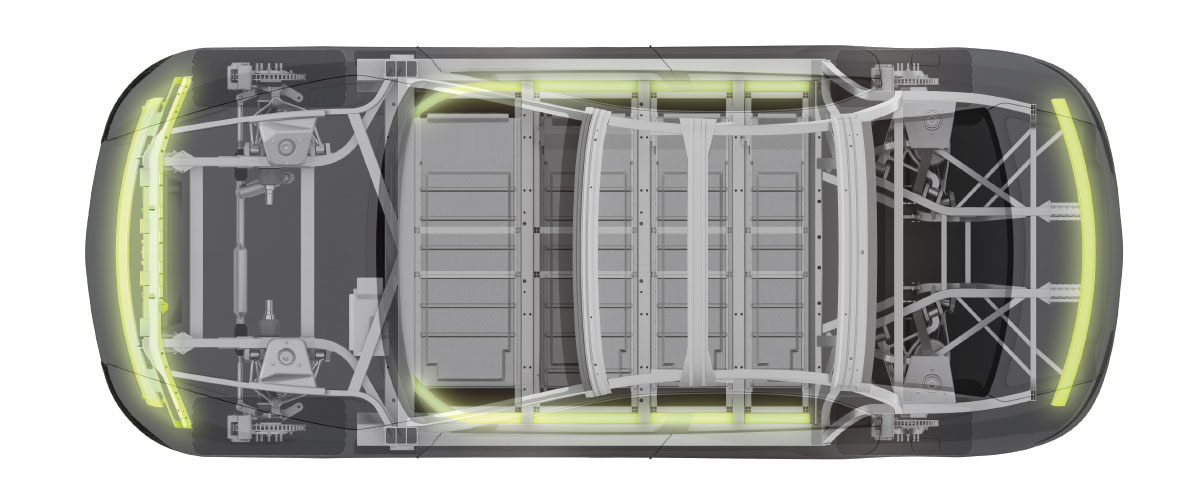
The leading
lightweight material
for automobiles.
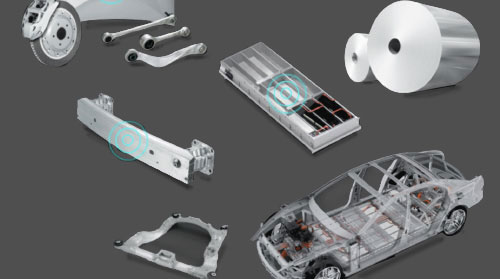
Aluminum is not easily replaceable by other materials
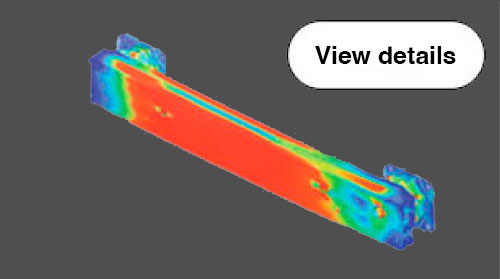
High-strength alloy extrusion shaped bumper
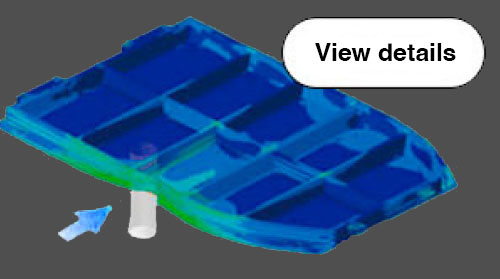
Development of battery housing
ALUMINUM
MOBILITY
COMPONENTS
Use of Aluminum Alloys in Automobiles
Aluminum alloys are increasingly being used in automobiles.
In Europe, the target regulatory value for CO2 emissions was an average of 130g/km or below by 2012, although it varied according to the weight of each vehicle. All the automobile manufacturers started moving towards improved fuel efficiency to meet that value. The target value for CO2 emissions by 2021 has been set at 95g/km or below.In North America, the target fuel efficiency value by 2020 is set at 35.7mpg (15.2 km/L) for passenger cars and 28.6mpg (12.2 km/L) for small trucks.
The adoption of aluminum alloys for automobiles, which began with cast-metal components such as engine parts, is now progressing to full-scale adoption thanks to the improved strength and formability of wrought aluminum alloys.
The adoption of aluminum alloys for automobiles, which began with cast-metal components such as engine parts, is now progressing to full-scale adoption thanks to the improved strength and formability of wrought aluminum alloys.
